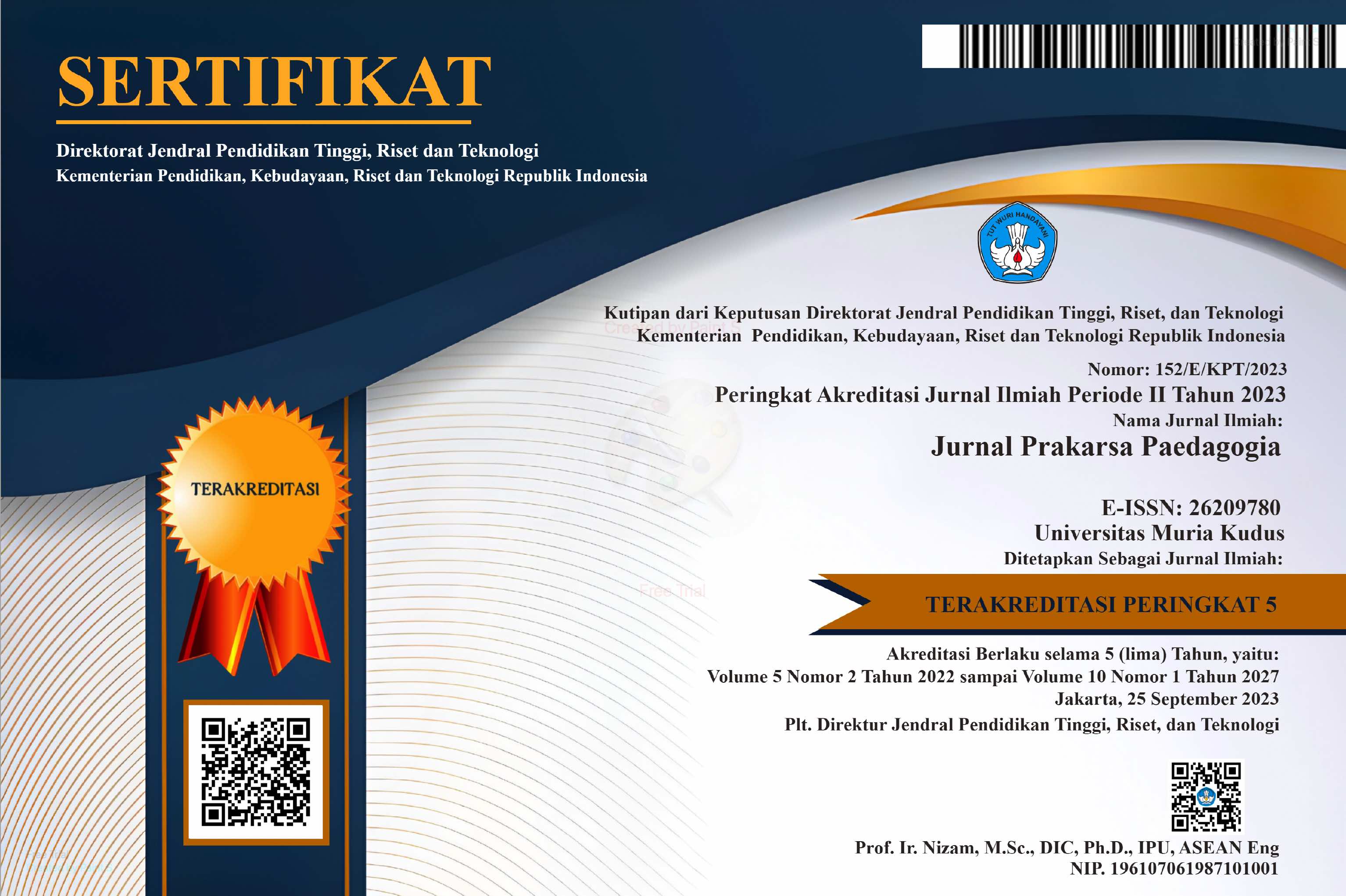Psychological Well-Being Peserta Didik Fase E SMA Negeri 10 Semarang
Abstract
Keywords
Full Text:
617-623 (Bahasa Indonesia)References
Christopher, J. (1999). Situating Psychological Well-Being: Exploring the Cultural Roots of Its Theory and Research. DOI:10.1002/j.1556-6676.1999.tb02434.x Journal of Counseling & Development.
Fava, G. A., & Tomba, E. (2009). Increasing Psychological Well-Being And Resilience By Psychotherapeutic Methods,Https://Doi.Org/10.1111/J.14676494.2009.00604.X.
Heydarpour, S., Parvane, E., Saqqezi, A., Ziapour, A., Dehghan, F., Parvaneh, A. (2018). Effectiveness of Group Counseling Based on the Reality Therapy on Resilience and Psychological Well-Being of Mothers with an Intellectual Disabled Child. International Journal of Pediatrics, 6(6), 7851-7860. https://doi:10.22038/ijp.2018.29464.2579
Keyes, C. L. M. (2009). The black-white paradox in health: Flourishing in the face of social inequality and discrimination. Journal of Personality, 77(6), 1677–1706. https://doi.org/10.1111/j.1467-6494.2009.00597.x
Kemdikbud. (2021). Modul Layanan Bimbingan Konseling Sekolah Menengah Atas. Tim Pusat Kurikulum dan Perbukuan, Kementerian Pendidikan dan Kebudayaan Republik Indonesia.
Paramitha S.D. (2019). Layanan Konseling Kelompok Dalam Meningkatkan Psychological Well-Being Remaja Di Lembaga Pembinaan Khusus Anak (LPKA) Pangkalpinang. Scientia: Jurnal Hasil Penelitian (e-ISSN: 2655-3716) Vol. 4, No. 1 (2019): 127-147. DOI: 10.32923/sci.v4i1.1015
Ryff, C.D. Happiness is everything D. (1989)., or is it? Explorations on the meaning of psychological wellbeing. Journal of Personality and Social Psychology. https://doi.org/10.1037/0022-3514.57.6.1069
Ryff, C.D. & Keyes, C.L.M. (1995). The structure of psychological wellbeing revisited. Journal of Personality and Social Psychology. https://doi.org/10.1037/0022-3514.69.4.719
Ryff, C. D., & Singer, B. H. (2008). Know Your Self. And Become What You Are: A Eudaimonic Approach To Psychological Well-Being. Journal Of Happines Studies. Springer. https://Doi:10.1007/s10902-006-9019-0
Ryff CD. (2018). Well-Being With Soul: Science in Pursuit of Human Potential. Perspectives on Psychological Science 2018, Vol. 13(2) 242–248. https://Doi:10.1177/1745691617699836
Safara M., Minoo Khanbabaee & Khanbabaee, M. (2018). Effectiveness of Spiritual Group Counseling on the Psychological Well-Being of Girls from Divorced Families. Health, Spirituality and Medical Ethics. 2019;6 (1):18-24. http://dx.doi.org/10.29252/jhsme.6.1.3
Sarwono. 2011. Psikologi Remaja.Edisi Revisi. Jakarta: Rajawali Pers.
Santrock, J.W. (2002). Life Span Development (Perkembangan Masa Hidup, Jilid 2, Penerjemah: Chusairi dan Damanik). Jakarta: Erlangga.
Wiguna, H., Nugraha, Y., Rizka R, F., Andika, A., Kanggrawan, J. I., & Suherman, A. L. (2020). Kebijakan Berbasis Data: Analisis dan Prediksi Penyebaran COVID-19 di Jakarta dengan Metode Autoregressive Integrated Moving Average (ARIMA). Jurnal Sistem Cerdas, 3(2), 74 - 83. https://doi.org/10.37396/jsc.v3i2.76
DOI: https://doi.org/10.24176/jpp.v6i1.11510
Refbacks
- There are currently no refbacks.
Copyright (c) 2023 Jurnal Prakarsa Paedagogia

This work is licensed under a Creative Commons Attribution-NonCommercial-ShareAlike 4.0 International License.
Visitors of the Paedagogia Prakarsa Journal Status
Country of Origin of Visitors:
Jurnal Prakarsa Paedagogia dari Fakultas Keguruan dan Ilmu Pendidikan Universitas Muria Kudus is licensed under a Creative Commons Attribution 4.0 International License.
Dedicated to:







